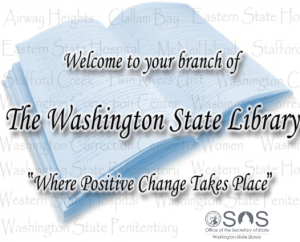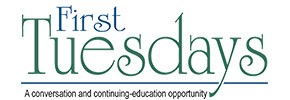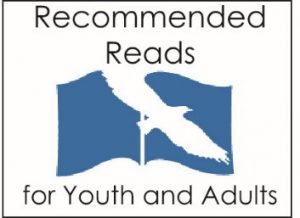State Library’s Annual Report Showcases Successes.
From the desk of Jeff Martin
Every year, the Washington State Library (WSL) reports on its use of Library Services and Technology Act (LSTA) funding to the federal Institute of Museum and Library Services (IMLS). On December 21, 2017, the LSTA State Programs Report for use of the 2016 LSTA award was submitted to IMLS for their review, comment, and approval. The year’s report is 126 pages in length.
Reporting is a team effort by all those who manage and support projects which use LSTA funding. The result is a report on 35 projects and 258 grant awards with total expenditures of $3,262,304. The Washington State Library, and the Washington library community which participated in these projects and grants, matched this amount of federal funding with $2,914,368 in state and local funding.

You may ask how this funding is used to support Washington libraries and the residents of the state…the following are a few examples:
- Statewide projects such as Statewide Database Licensing and the Ask-WA: The Statewide Virtual Reference Cooperative allow groups of libraries within Washington to work cooperatively to lower costs or provide higher levels of service. In the previous decade it was estimated that Statewide Database Licensing allowed all types of libraries working cooperatively to save $18,000,000 over the cost of individually subscribing to these services. The Ask-WA online virtual reference service provides 24/7 coverage for Washington residents who have questions and need answers. This service is in cooperation with an international cooperative of libraries. During their business hours local libraries answer questions from Washington residents. In addition if a person is awake at 3:00 a.m., has a question and can’t find an answer, they can submit the question to the cooperative. It may be, for example, that a librarian in Australia initially replies. The question is then forwarded to the person’s local library for follow-up if needed during their normal business hours.
 Other statewide projects such as Washington Rural Heritage, and Washington Digital Newspapers focus on providing access to digitized primary sources documenting the early culture, industry, and community life of Washington State. Washington Rural Heritage contains approximately 30,000 items from 148 different cultural institutions throughout the state. This collection represents 49 libraries and their partners including numerous historical societies and museums. Washington Digital Newspapers consists of online access to roughly 45 different newspapers published between 1875 and 1922. Digital access to some of these newspapers includes only a small number of issues and for others hundreds or thousands of issues.
Other statewide projects such as Washington Rural Heritage, and Washington Digital Newspapers focus on providing access to digitized primary sources documenting the early culture, industry, and community life of Washington State. Washington Rural Heritage contains approximately 30,000 items from 148 different cultural institutions throughout the state. This collection represents 49 libraries and their partners including numerous historical societies and museums. Washington Digital Newspapers consists of online access to roughly 45 different newspapers published between 1875 and 1922. Digital access to some of these newspapers includes only a small number of issues and for others hundreds or thousands of issues. Still other projects such as Youth Services, Early Learning, and Summer Reading primarily support younger library users. The Washington State Library is a member of the Collaborative Summer Library Program (CSLP), a national cooperative of state and local libraries that work together to provide high-quality summer reading program materials for children, teens, and even adults. The Washington State Library also distributes STEM/STEAM kits to public and tribal libraries to ensure that children and teens throughout the state are provided with hands-on experiences with science, technology, engineering, and math (STEM) that engage their interest, and provide exploration of possible career paths in a fun and rewarding way. The eight STEM kits were rotated among libraries over 308 times during the year with a total attendance of over 3,300.
Still other projects such as Youth Services, Early Learning, and Summer Reading primarily support younger library users. The Washington State Library is a member of the Collaborative Summer Library Program (CSLP), a national cooperative of state and local libraries that work together to provide high-quality summer reading program materials for children, teens, and even adults. The Washington State Library also distributes STEM/STEAM kits to public and tribal libraries to ensure that children and teens throughout the state are provided with hands-on experiences with science, technology, engineering, and math (STEM) that engage their interest, and provide exploration of possible career paths in a fun and rewarding way. The eight STEM kits were rotated among libraries over 308 times during the year with a total attendance of over 3,300.
 Another focus the Washington State Library throughout the year is providing training to library staff using Professional Development Grants, Online Training Resources, and face-to-face training experiences. Training and professional development grants allow local library staff to enhance knowledge and skills and in turn better serve their patrons. First Tuesdays is one example of a monthly hour-long webinar produced by the Washington State Library. This webinar focuses on issues of interest to the Washington library community. Many other opportunities are available to library staff throughout the year. During the last federal fiscal year over 1,100 training seats were filled by library staff from all types of libraries.
Another focus the Washington State Library throughout the year is providing training to library staff using Professional Development Grants, Online Training Resources, and face-to-face training experiences. Training and professional development grants allow local library staff to enhance knowledge and skills and in turn better serve their patrons. First Tuesdays is one example of a monthly hour-long webinar produced by the Washington State Library. This webinar focuses on issues of interest to the Washington library community. Many other opportunities are available to library staff throughout the year. During the last federal fiscal year over 1,100 training seats were filled by library staff from all types of libraries.
Did you know that the Washington State Library provides library services in nine of the Department of Correction prisons and also Eastern State Hospital and Western State Hospital?
The prison libraries are supported with federal library funding. These libraries provide the residents of these institutions support for education, literacy, recovery, recreation, and re-entry. It is a goal of this program that these libraries support a reduction in inmate recidivism leading to healthier and safer communities over time. Over 574,000 items were circulated by these 11 libraries to those incarcerated or institutionalized.
 The Washington Talking Book & Braille Library (WTBBL) is a program of the Washington State Library. WTBBL provides equal access to information and reading materials for Washington residents unable to read standard print. A portion of the funding for this service comes from federal LSTA funding. WTBBL has over 7,300 patrons, serves 224 Washington state schools and 261 other Washington state organizations. Roughly 320,000 audiobooks and other materials were circulated during the reporting year along with approximately 74,000 books and magazines being downloaded. On May 19, 2017, the National Library Service for the Blind and Physically Handicapped (NLS), part of the Library of Congress, named the Washington Talking Book and Braille Library of Seattle as the Network Library of the Year for 2016.
The Washington Talking Book & Braille Library (WTBBL) is a program of the Washington State Library. WTBBL provides equal access to information and reading materials for Washington residents unable to read standard print. A portion of the funding for this service comes from federal LSTA funding. WTBBL has over 7,300 patrons, serves 224 Washington state schools and 261 other Washington state organizations. Roughly 320,000 audiobooks and other materials were circulated during the reporting year along with approximately 74,000 books and magazines being downloaded. On May 19, 2017, the National Library Service for the Blind and Physically Handicapped (NLS), part of the Library of Congress, named the Washington Talking Book and Braille Library of Seattle as the Network Library of the Year for 2016.
The mission of the Washington State Library is “Connecting Washington through the power of libraries.” WSL is proud to be able to provide a range of services to academic libraries, public libraries, school libraries, non-profit special libraries, and tribal libraries who in turn are better able to support the residents of their local community. WSL services take the form of one-on-one consulting, grant awards to support the development of new and enhanced library services, training to enhance the knowledge and skills of local library staff, cooperative projects which leverage the power of individual libraries, and statewide projects which focus on topical areas of opportunity and needs.
Read the full State Programs Report at 2016 LSTA State Programs Report.
You can follow any responses to this entry through the RSS 2.0 feed. Both comments and pings are currently closed.





